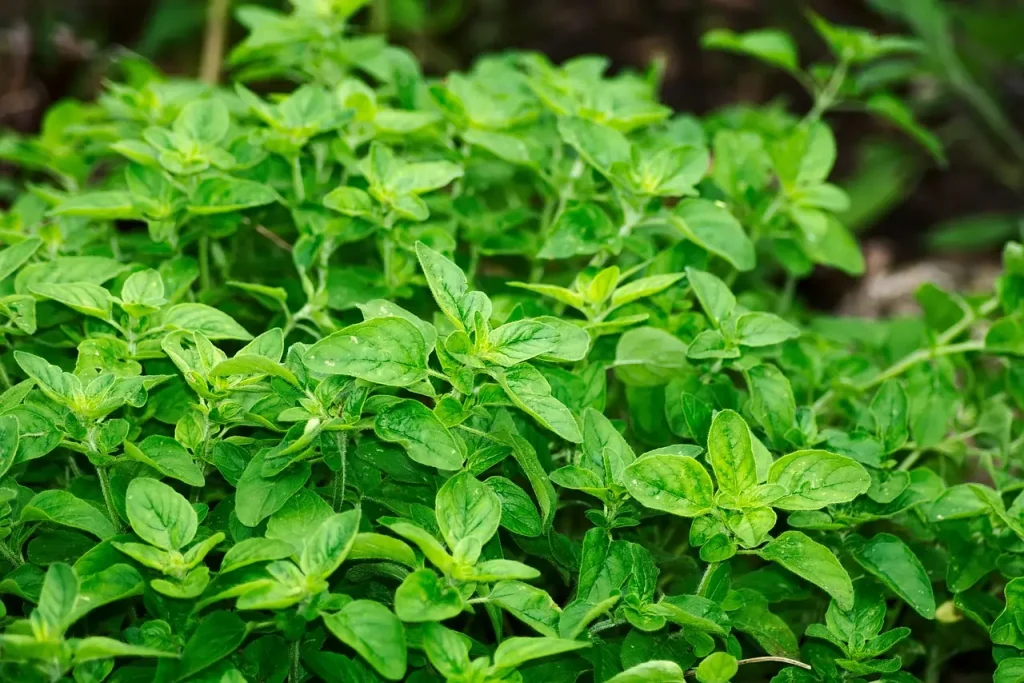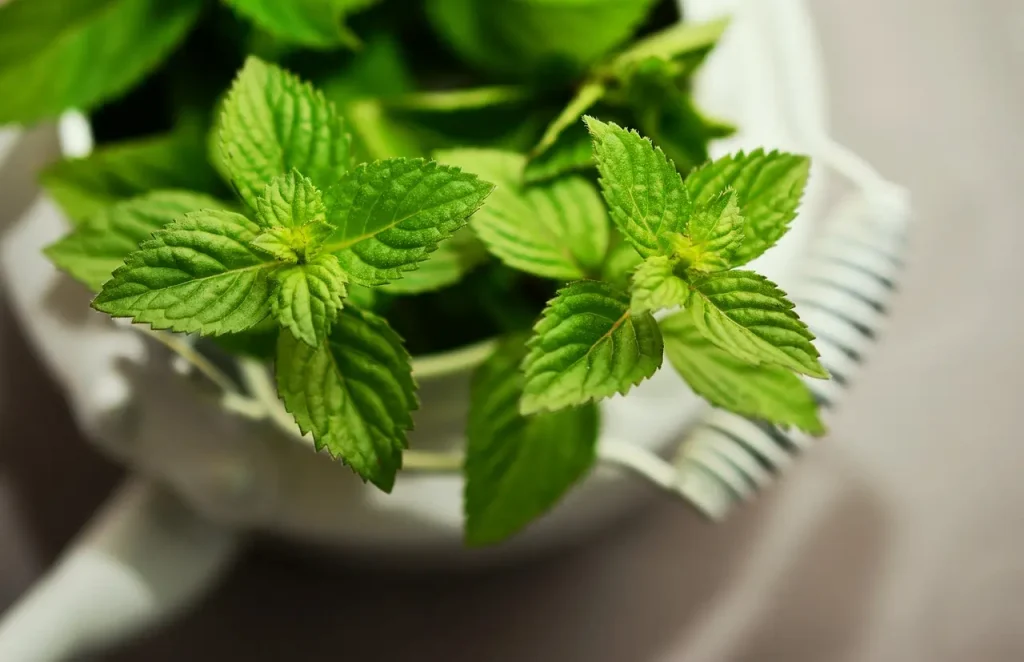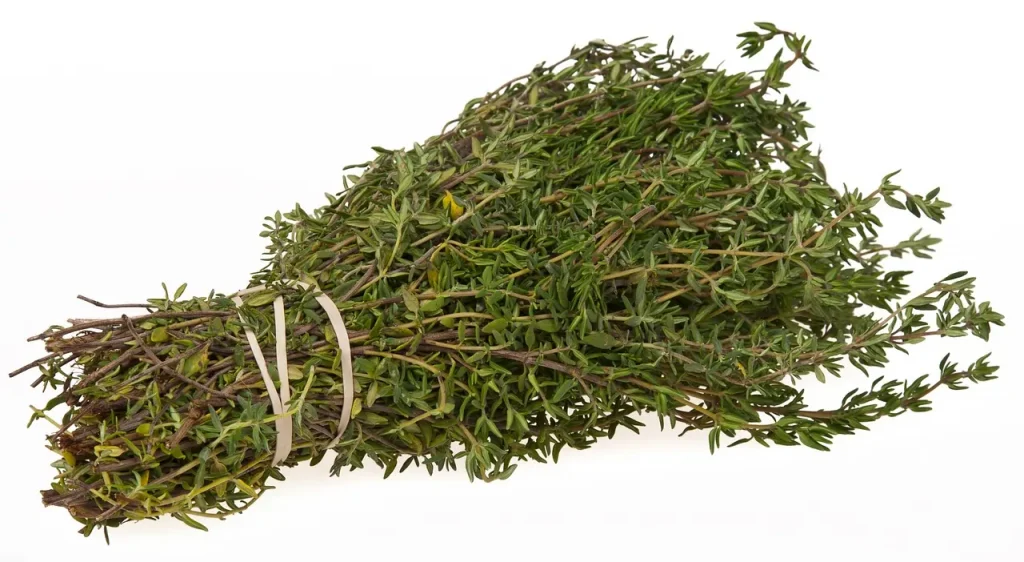Growing herbs at home can be a great way to have natural remedies on hand for a variety of ailments. Not only are herbs easy to grow, but they also add flavor to your cooking and can be used in a variety of ways for natural remedies. Here are five easy-to-grow herbs for natural remedies at home
Basil: The Versatile Herb for Cooking and Natural Remedies
Basil is a herb that is widely used in cooking and is known for its unique aroma and taste. But, did you know that basil also has medicinal properties that make it a great herb to have at home for natural remedies?
Cooking with Basil
Basil is a popular herb in many cuisines, particularly Italian and Mediterranean. It is often used to flavor pasta sauces, pizzas, and salads. The leaves of the basil plant can be torn or chopped and added to dishes for a fresh and fragrant flavor. Basil pairs well with many other herbs and spices such as oregano, thyme, and garlic.
Health Benefits of Basil:
Basil is packed with antioxidants and has anti-inflammatory properties that make it a great herb for natural remedies. Some of the health benefits of basil include:
- Relieving Headaches and Muscle Pain: The anti-inflammatory properties of basil can help to reduce pain and inflammation in the body. It can be used to relieve headaches and muscle pain by applying the juice of basil leaves to the affected area or by consuming basil in food or as a supplement.
- Boosting the Immune System: Basil contains high levels of Vitamin C, which is essential for a strong immune system. Eating basil regularly can help to boost the immune system and protect the body from infections.
- Improving Digestion: Basil has been traditionally used to improve digestion and relieve bloating, gas, and constipation. The essential oils present in basil are thought to stimulate the production of bile, which aids in digestion.
- Reducing Stress: Basil has a calming effect on the mind and body, and can help to reduce stress and anxiety. Drinking basil tea or inhaling the aroma of basil essential oil can help to relax the mind and promote a sense of calm.
Growing and Using Basil
Basil is a very easy herb to grow and can be grown in pots or in the garden. It prefers a warm and sunny location and well-drained soil. It is a fast-growing herb and can be harvested regularly to encourage bushier growth.
When using basil in cooking, it is best to add it towards the end of the cooking process to preserve its flavor and aroma. Dried basil can also be used, but it has a stronger flavor and less aroma than fresh basil.
Rosemary: The Herb for Memory and Concentration
Rosemary is a perennial herb that is native to the Mediterranean. It is well-known for its unique aroma and flavor, and is often used in cooking to flavor meats, soups, and stews. But, did you know that rosemary also has medicinal properties that make it a great herb to have at home for natural remedies?.
Cooking with Rosemary
Rosemary is a popular herb in many cuisines, particularly Mediterranean, Italian, and French. It is often used to flavor meats, such as chicken, lamb and pork, as well as soups, stews, and marinades. The leaves of the rosemary plant can be torn or chopped and added to dishes for a woodsy and fragrant flavor. Rosemary pairs well with many other herbs and spices such as thyme, oregano, garlic, and lemon.
Health Benefits of Rosemary
Rosemary is packed with antioxidants and has anti-inflammatory properties that make it a great herb for natural remedies. Some of the health benefits of rosemary include:
- Improving Memory and Concentration: Rosemary has been traditionally used to improve memory and concentration. Studies have shown that the aroma of rosemary essential oil can improve cognitive function and memory recall.
- Relieving Indigestion: Rosemary has been traditionally used to relieve indigestion and bloating. The essential oils present in rosemary are thought to stimulate the production of bile, which aids in digestion.
- Boosting the Immune System: Rosemary contains high levels of Vitamin C, which is essential for a strong immune system. Eating rosemary regularly can help to boost the immune system and protect the body from infections.
- Reducing Inflammation: The anti-inflammatory properties of rosemary can help to reduce pain and inflammation in the body. It can be used to relieve muscle pain and joints pain by applying the juice of rosemary leaves to the affected area or by consuming rosemary in food or as a supplement.
Growing and Using Rosemary
Rosemary is a very easy herb to grow and can be grown in pots or in the garden. It prefers a warm and sunny location and well-drained soil. It is a slow-growing herb and can be harvested regularly to encourage bushier growth.
When using rosemary in cooking, it is best to add it towards the end of the cooking process to preserve its flavor and aroma. Dried rosemary can also be used, but it has a stronger flavor and less aroma than fresh rosemary.
Oregano: The Herb for Immune Support and Respiratory Health
Oregano is a perennial herb that is native to the Mediterranean. It is well-known for its unique aroma and flavor, and is often used in cooking to flavor meats, soups, and stews. But, did you know that oregano also has medicinal properties that make it a great herb to have at home for natural remedies?.
Cooking with Oregano
Oregano is a popular herb in many cuisines, particularly Mediterranean, Italian, and Mexican. It is often used to flavor meats, such as chicken, lamb, and pork, as well as soups, stews, and marinades. The leaves of the oregano plant can be torn or chopped and added to dishes for a slightly bitter and fragrant flavor. Oregano pairs well with many other herbs and spices such as thyme, rosemary, garlic, and lemon.
Health Benefits of Oregano
Oregano is packed with antioxidants and has anti-inflammatory properties that make it a great herb for natural remedies. Some of the health benefits of oregano include:
- Boosting the Immune System: Oregano contains high levels of Vitamin C and Vitamin A which are essential for a strong immune system. Eating oregano regularly can help to boost the immune system and protect the body from infections.
- Relieving Respiratory Issues: Oregano is a powerful antioxidant and anti-inflammatory herb that can be used to relieve respiratory issues such as sore throat, cough, and bronchitis. The essential oils present in oregano are thought to have a decongestant effect and can be used to clear the lungs and sinuses.
- Reducing Inflammation: Oregano contains high levels of compounds such as carvacrol and thymol, which have anti-inflammatory properties and can help to reduce pain and inflammation in the body. It can be used to relieve muscle pain and joints pain by applying the juice of oregano leaves to the affected area or by consuming oregano in food or as a supplement.
- Improving Digestion: Oregano has been traditionally used to improve digestion and relieve bloating, gas, and constipation. The essential oils present in oregano are thought to stimulate the production of bile, which aids in digestion.
Growing and Using Oregano
Oregano is a very easy herb to grow and can be grown in pots or in the garden. It prefers a warm and sunny location and well-drained soil. It is a fast-growing herb and can be harvested regularly to encourage bushier growth.
When using oregano in cooking, it is best to add it towards the end of the cooking process to preserve its flavor and aroma. Dried oregano can also be used, but it has a stronger flavor and less aroma than fresh oregano.

Mint: The Herb for Digestion and Fresh Breath
Mint is a perennial herb that is native to Europe and Asia. It is well-known for its unique aroma and flavor, and is often used in cooking to flavor desserts, teas, and beverages. But, did you know that mint also has medicinal properties that make it a great herb to have at home for natural remedies?.
Cooking with Mint
Mint is a popular herb in many cuisines, particularly Middle Eastern and Mediterranean. It is often used to flavor desserts, teas, and beverages, such as mint tea, mojito, and mint julep. The leaves of the mint plant can be torn or chopped and added to dishes for a refreshing and fragrant flavor. Mint pairs well with many other herbs and spices such as basil, thyme, oregano, and lemon.
Health Benefits of Mint
Mint is packed with antioxidants and has anti-inflammatory properties that make it a great herb for natural remedies. Some of the health benefits of mint include:
- Aiding Digestion: Mint has been traditionally used to aid digestion and relieve bloating, gas, and constipation. The essential oils present in mint are thought to stimulate the production of bile, which aids in digestion.
- Freshening Breath: Mint has a refreshing and invigorating aroma that can freshen breath and eliminate bad odors. Chewing on mint leaves or using mint-flavored toothpaste can help to freshen breath and eliminate bad odors.
- Relieving Headaches and Nausea: Mint has a calming effect on the mind and body, and can help to relieve headaches and nausea. Drinking mint tea or inhaling the aroma of mint essential oil can help to relax the mind and promote a sense of calm.
- Reducing Inflammation: The anti-inflammatory properties of mint can help to reduce pain and inflammation in the body. It can be used to relieve muscle pain and joints pain by applying the juice of mint leaves to the affected area or by consuming mint in food or as a supplement.
Growing and Using Mint
Mint is a very easy herb to grow and can be grown in pots or in the garden. It prefers a warm and shady location and well-drained soil. It is a fast-growing herb and can be harvested regularly to encourage bushier growth.
When using mint in cooking, it is best to add it towards the end of the cooking process to preserve its flavor and aroma. Dried mint can also be used, but it has a stronger flavor and less aroma than fresh mint.

Thyme: The Herb for Respiratory Health and Muscle Pain
Thyme is a perennial herb that is native to the Mediterranean. It is well-known for its unique aroma and flavor, and is often used in cooking to flavor meats, soups, and stews. But, did you know that thyme also has medicinal properties that make it a great herb to have at home for natural remedies? In this article, we will explore the many uses of thyme and how it can be used to improve your health and well-being.
Cooking with Thyme
Thyme is a popular herb in many cuisines, particularly Mediterranean, French, and Italian. It is often used to flavor meats, such as chicken, lamb, and pork, as well as soups, stews, and marinades. The leaves of the thyme plant can be torn or chopped and added to dishes for a woodsy and fragrant flavor. Thyme pairs well with many other herbs and spices such as rosemary, oregano, garlic, and lemon.
Health Benefits of Thyme
Thyme is packed with antioxidants and has anti-inflammatory properties that make it a great herb for natural remedies. Some of the health benefits of thyme include:
- Relieving Respiratory Issues: Thyme is a natural antiseptic and can be used to treat a variety of respiratory issues, including sore throats, coughs, and bronchitis. The essential oils present in thyme are thought to have a decongestant effect and can be used to clear the lungs and sinuses.
- Relieving Muscle Pain: Thyme has been traditionally used to relieve muscle pain and improve circulation. The anti-inflammatory properties of thyme can help to reduce pain and inflammation in the muscles and joints.
- Improving Immunity: Thyme contains high levels of Vitamin C and Vitamin A which are essential for a strong immune system. Eating thyme regularly can help to boost the immune system and protect the body from infections.
- Reducing Inflammation: The anti-inflammatory properties of thyme can help to reduce pain and inflammation in the body. It can be used to relieve muscle pain and joints pain by applying the juice of thyme leaves to the affected area or by consuming thyme in food or as a supplement.
Growing and Using Thyme
Thyme is a very easy herb to grow and can be grown in pots or in the garden. It prefers a warm and sunny location and well-drained soil. It is a slow-growing herb and can be harvested regularly to encourage bushier growth.
When using thyme in cooking, it is best to add it towards the end of the cooking process to preserve its flavor and aroma. Dried thyme can also be used, but it has a stronger flavor and less aroma than fresh thyme.

Conclusion
Herbs are an easy and natural way to improve your overall health and well-being. Not only herbs are easy to grow, but they can also be used in a variety of ways for natural remedies. The five herbs discussed in this article, basil, rosemary, oregano, mint and thyme, are all great options to grow at home, they all have unique properties that can help improve different areas of health.